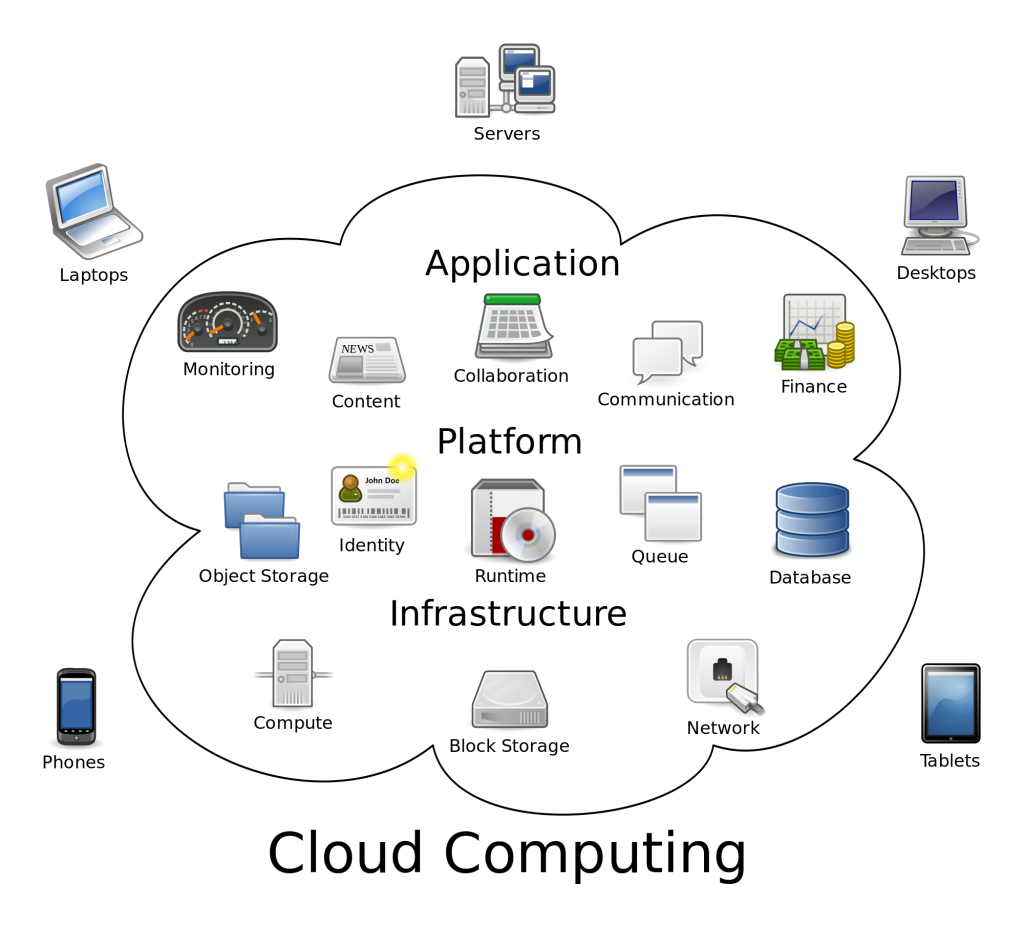As children, most of dreamed of living in the clouds and being able to look down at others to see what they were doing. Well, that has taken on quite a different meaning today with cloud computing. I am assuming that anyone who is reading this has a basic definition of what cloud computing is. In simplest terms, it is computing power to be consumed without really knowing or caring where it comes from. I am writing this blog on the Google cloud or ‘blogosphere.’ I do not have a copy of this blog on my laptop anywhere nor do I care where the contents resides.
That does not sound safe, does it? What happens if the cloud goes away? Or if the cloud owners deny me access? How do I know that someone who works for the cloud company is not viewing or even stealing my ideas or data? After all, didn’t that just happen with that Snowden fellow in a big way?
But more and more I am using the cloud and using the cloud much more effectively. For my day job, I work for one of the largest and most successful cloud companies there is – EMC. Our livelihood is dependent on your data being safe and secure. We also know there are tremendous benefits in cloud computing for large corporations and for individuals.
I am an individual who likes to be in control. I want to manage my own fate and have control over how things function. On a personal level, I have been a late arriving user of cloud computing, but that is changing rapidly. I was getting tired of carrying around a laptop everywhere I go to have my data on hand with me. Even then, not all of my data is with me as I have a lot stored on our NAS. While much of the NAS is backed-up copies or archived information, but I occasionally require access to it and I never know when or how often that occurs. But it has several times in the last few years, and I have had to do without.
But cloud computing removes my data from any given device such as my laptop and makes it accessible wherever I can tap into a computing device, be it my smart phone or my tablet, or another laptop or desktop computer somewhere. Therefore, the first big benefit of cloud computing is that I can get access to my data, anywhere and at any time as long as I have mobile access. (I am never without mobile access!) I can then share my data across a multitude of platforms and with other individuals.
I have over 1,000 electronic books and can share them across my phone, my tablet and my eBook reader as required, and the point I left off and any highlighting or marginalia is synchronized when I leave one device and go to another. I also started using Evernote to clip websites, email, pictures and other useful things for which I wanted a record. I used to use Notepad to write to-dos, ideas, and record other information, but have now found Evernote to be so much better. I can brainstorm and mind map one of my writing projects on my tablet and then send it to myself (to be loaded into my authoring management system) or another person. I also use it to collaborate and share information on writing projects with other people.
More and more of my applications are used ‘in the cloud.’ By choosing the right applications and establishing the proper workflow, I have increased my writing productivity by 300% – 400%. That is a significant improvement! By using cloud computing, I have achieved the following benefits:
- 300% – 400% increase in productivity in many areas
- Much better end-to-end workflows without losing train of thought
- Virtually no capital outlay or expenditure
- Significantly reduced need to carry data and computing power around with me, and be able to use the simplest of devices to get most things accomplished
- Ability to collaborate and share workloads with others in controlled manner
- Ability to retrieve things even if I forgot to bring them along
- Significant reduction on physical notepads, post-it notes, and hand-scratched to-do lists
And what about the issue of backing things up and making sure I have access to them? For really critical things like my 150 wine blog posts, I regularly export them and store a copy on my local NAS (or even a USB stick now that they store so much!) Or I back up and synchronize between clouds. I have free access to 120 GBs of Cloud data across four cloud environments, which is far, far more than I require. Therefore, if I truly was concerned about the risk of not having access to my one of my clouds, I could retrieve the information from another one. And things are so easy now that I set up my own self-hosted website and built the website in several hours, having moved 150 wine blog posts from Blogger to WordPress.
More and more I am living in the clouds! And really enjoying it and benefiting from it. You should consider the same if you have not already. And if that Snowden guy really wants to see what my wife and I have on our joint shopping list, accessible by all of our devices, then he can have at it!
© 2013. Steve Shipley, author of Wine Sense, due out early 2014
Twitter: @shipleyaust
Still Stupid at Sixty (published under my writing pseudonym Blake Stevens)


Peter Trewin on August 12, 2013 at 5:47 am said:
Great practical article. So much easier now to get access to “anyinformation” anytime, anyplace, “anydevice”